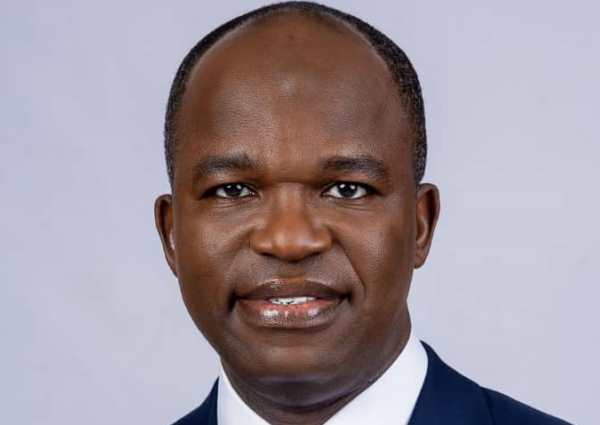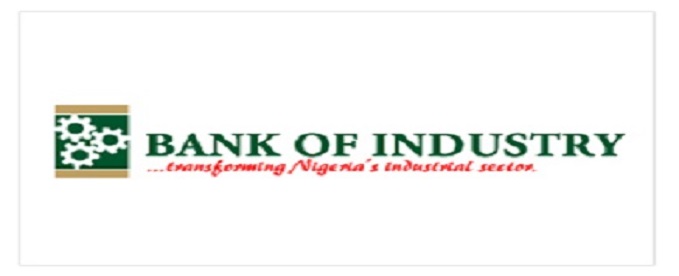E-Financial
Polaris Bank MD, Abiru, Retires

Mr. Tokunbo Abiru, Managing Director/Chief Executive Officer of Polaris Bank Limited, has announced his retirement from the service of Polaris Bank, effective August 31, 2020, having successfully completed his second two-year tenure at the helm of the Bank.

In an emotion-laden farewell message to the staff of the Bank, Mr. Abiru explained that having served meritoriously in the banking industry for nearly three decades, he had resolved to retire to enable him contribute his quota in other areas of the society.
Sharing his scorecard while serving as the CEO of the Bank, Mr. Abiru noted: “It gives me great pleasure to say that, with the support of the Board, Executive Management and all of you, we have delivered on the mandate given to us by the Central Bank of Nigeria upon assumption of office in 2016.”
Going down memory lane, he reminded staff of the Bank’s poor state before he assumed office in 2016 as the Group Managing Director of the erstwhile Skye Bank.
He noted that all prudential ratios were out of compliance with regulatory requirements, Capital was negative, the loan book was mostly delinquent, while liquidity faced deposit attrition. Furthermore, the IT infrastructure was dilapidated and employee morale was low, resulting in erosion of public confidence.
He praised the staff for working with him to reverse the trend and bring about an institution that has become a compelling case study in corporate turnaround within Nigeria’s financial services industry. In his words: “We have reversed almost all regulatory ratios for good and currently rank amongst the very best in the industry.
“There can be no better testament to the much-improved state of the Bank than the full year 2019 results in which the Bank posted Profit After Tax (PAT) of N27billion. To buttress the fact that this is sustainable, the Bank’s first half 2020 result showed a PAT of over N18billion, despite the tremendous headwinds brought on by the COVID-19 pandemic.”
He went on to say: “We also commenced the refreshment of the Bank’s IT infrastructure, which had largely become outdated and dilapidated due to years of under-investment.
As a result of the successful completion of the first phase of the IT Refresh Program, which consisted mainly of upgrade of the infrastructure and digital platforms, and relocation of the Bank’s Data Centres to Tier III data locations as mandated by CBN regulations and in line with global best practices, the Bank’s customers are now experiencing significantly improved service delivery.
“In addition, by introducing and committing resources to the Agency Banking model, we have contributed in no small measure to deepening financial inclusion for the unbanked and under-banked throughout the length and breadth of Nigeria.”
He restated that today’s Polaris Bank has been successfully positioned as a bank of choice in Nigeria due to the work that has been put in by the various stakeholders including the loyal customers of the Bank.
On the issue of leadership succession, Mr. Abiru said, “During this period leading to my final disengagement, I will work closely with the CBN, the Board of Directors and Executive Management of our Bank to ensure a seamless transition and smooth handover to my successor.”
Tokunbo Abiru was appointed the Group Managing Director and Chief Executive Officer of the then Skye Bank in July 2016.
Before his appointment, he had served in several capacities in some of the leading Banks in Nigeria’s banking industry, including at one time as an Executive Director in First Bank of Nigeria Plc.
He was at various times appointed as Non–Executive Director in some leading companies, including Econet (now Airtel) Mobile Networks Limited, and FBN Capital Limited (now FBN Merchant Bank Limited).
Mr Abiru has also had a brief stint in public service, having served from 2011 to 2013 as the Honorable Commissioner of Finance for Lagos State Government under the dynamic and transformational leadership of Governor Babatunde R. Fashola (SAN).
Following the establishment of Polaris Bank in September 2018, the Central Bank of Nigeria affirmed the performance of the Bank’s Board of Directors, and reappointed Mr. Tokunbo Abiru to lead the new Bank; a position he held until opting for voluntary retirement from the Bank.
Polaris Bank is a future-determining Bank committed to the delivery of industry-defining products for individuals and businesses.
E-Financial
Ecobank Nigeria Fully Repays $300m Eurobond Notes

Ecobank Nigeria has announced the successful repayment of the outstanding principal and accrued interest on its original $300 million Eurobond due February 16, 2026, marking a significant milestone in its liability management strategy and overall balance sheet strengthening efforts.

Following the full repayment of the Eurobond obligations, the Bank stated that it will now focus its funding initiatives primarily on the domestic capital markets. T
his strategic shift reflects growing confidence in Nigeria’s local debt market and aligns with Ecobank Nigeria’s long-term objective of optimising funding costs while deepening its participation in the domestic financial ecosystem.
“Going forward, Ecobank Nigeria will prioritise domestic credit ratings and local debt issuance to achieve its funding objectives,” stated Ogorchukwu Okwechime, Financial Controller, Ecobank Nigeria, in Lagos.
He added that the successful repayment reinforces the Bank’s commitment to maintaining a resilient balance sheet and sustaining investor confidence.
The tender offer was conducted with Renaissance Capital Africa (Renaissance Securities Nigeria Limited) acting as financial adviser and dealer manager, while Sodali & Co Limited served as tender agent.
The notes were originally issued by EBN Finance Company B.V., with limited recourse to the issuer, for the sole purpose of financing the purchase of the US$300 million 7.125 per cent Senior Note due 2026 issued by Ecobank Nigeria.
The transaction underscores Ecobank Nigeria’s proactive approach to liability management, prudent capital planning, and strategic alignment with evolving market conditions.
It further positions the Bank to leverage domestic funding opportunities while maintaining financial flexibility and operational stability.
E-Financial
BoI Secures CBN’s Approval for Non-interest Banking Operation

Bank of Industry (BOI) has received approval from the Central Bank of Nigeria (CBN) to operate a Non-Interest Banking (NIB) Window.

Theodora Amechi, bank’s divisional head, Public Relations, said the regulatory nod allows BOI to launch non-interest banking operations, targeting underserved business segments with tailored financial solutions to support Nigeria’s industrial development.
BOI stated that NIB operations will promote inclusive growth, attract ethical funding, bolster the real economy, and finance customer assets and raw materials using approved non-interest products.
“This approval authorises BOI to commence Non-Interest Banking operations, positioning the bank to further advance Nigeria’s sustainable and inclusive industrial development through tailored financial solutions for underserved and high-impact business segments.
“The Non-interest Banking operations will enable BOI to drive inclusive growth, mobilise new ethical funding, expand support for the real economy, and align its financing activities with social and developmental objectives.
According to the bank, under this framework, BOI will be able to finance customers’ assets and raw materials using approved Non-Interest Banking products.
Announcing this milestone, Dr Olasupo Olusi, MD/CEO, Bank of Industry, said, “This licence marks a pivotal moment in the Bank’s journey of transforming Nigeria’s industrial sector. With this licence, we can reach a new category of borrowers who, before now, could not be served.”
He said the approval underscores the CBN’s confidence in the Bank’s commitment to responsible financing, adding that it will allow the bank to scale its operations, introduce innovative financing solutions, and deepen support for Micro, Small and Medium Enterprises (MSMEs), as well as other underserved segments critical to Nigeria’s sustainable economic growth.
“BOI’s decision to commence Non-Interest Banking operations is aimed at expanding access to ethical funding for businesses—particularly those that have traditionally avoided conventional interest-based financing.
This initiative opens new opportunities for ethically motivated and faith-sensitive enterprises, as well as segments of the economy that face challenges accessing traditional credit.
It enables such businesses to access much-needed financing and participate confidently in the formal financial system in a manner consistent with their values and business realities.
Bank of Industry (BOI) is Nigeria’s foremost Development Finance Institution, committed to driving industrial growth and inclusive economic development,” Olusi said.
Established in 1959 as the Investment Company of Nigeria (ICON) and reconstituted as Nigerian Industrial Development Bank (NIDB) under World Bank guidance in 1964.
The Bank assumed its current form in 2001 following the merger of the Nigerian Bank for Commerce and Industry (NBCI) and the National Economic Reconstruction Fund (NERFUND).
The Bank’s primary mandate is to provide financial assistance for the establishment and expansion of large, medium, small-scale, and micro projects.
E-Financial
Zenith Bank Warns Public Over Fake Jim Ovia Investment Videos

Zenith Bank Plc has cautioned the public against fraudulent videos circulating online falsely claiming that Group Chairman Dr. Jim Ovia endorses an investment scheme called “Wealth Bridge.”

Jim Ovia
In a disclaimer issued Tuesday by its management, the bank described the videos—circulated via the “Greece Island” Facebook handle—as entirely fake, doctored content bearing no connection to Dr. Ovia, the bank, or its affiliates.
The materials falsely promise up to N2 million in weekly returns for a N380,000 investment, while baselessly alleging Central Bank of Nigeria (CBN) endorsement and redirecting viewers to a sham “Arise News” webpage with a signup portal.
“Our attention has been drawn to a doctored video and still pictures currently circulating on social media, purporting to depict the Group Chairman of Zenith Bank Plc (‘the Bank’) as endorsing an investment scheme called ‘Wealth Bridge’ on the ‘Greece Island’ Facebook handle and soliciting members of the public to engage in a business relationship with the so-called entity,” the statement read.
“This claim is entirely false and has no connection whatsoever to the Group Chairman, the Bank or any of its affiliate companies.”
Zenith Bank stressed that Dr. Ovia and the institution have no knowledge of or partnership with “Wealth Bridge,” “delicious sitee,” “AfriQuantumX,” “Stock market analyst 1,” or related entities. The public was warned that dealing with these schemes carries full personal risk.
Ravenewsonline urges vigilance against rising impersonation scams targeting financial institutions.

 News2 days ago
News2 days agoAfrican Leaders Highlight Africa’s AI Ambitions

 General News2 days ago
General News2 days agoNDPC Orders Probe into Temu over Alleged Data Privacy Breaches

 Telecom2 days ago
Telecom2 days agoMTN, BUA, Dangote & Other Industry Giants Triumph at NGX Made of Africa Awards

 Telecom2 days ago
Telecom2 days agoX Suffers Global Outage, Millions Barred from Access

 News2 days ago
News2 days agoLG Nigeria Begins Nationwide Search for Oldest Working TV, Rewards Loyalty with AI QNED Upgrade

 Telecom2 days ago
Telecom2 days agoMTN CIO Urges Africa to Lead Fourth Digital Revolution

 Telecom1 day ago
Telecom1 day agoTerra Moves to Expand in African Drone Sector, Secures $22m Funding

 General News3 days ago
General News3 days agoLeo Stan Ekeh Foundation, Zinox Group To Invest 10B on 1000 University Tech Scholarships for Indigent Nigeria Wiz-kids






















